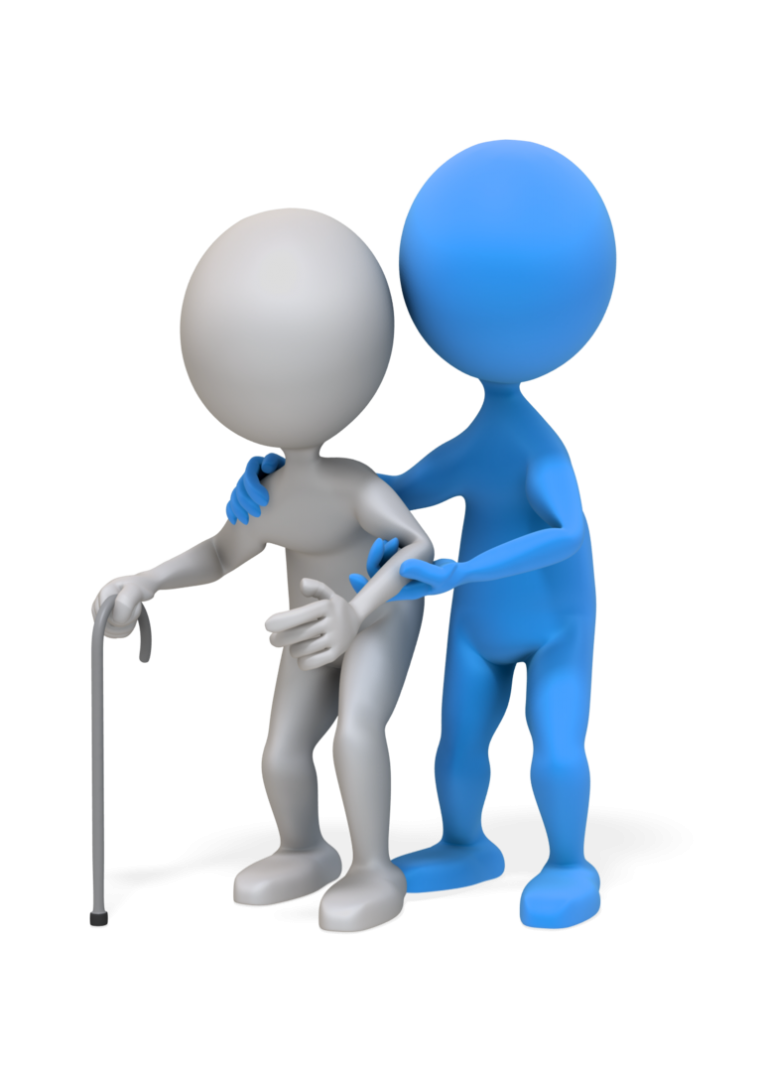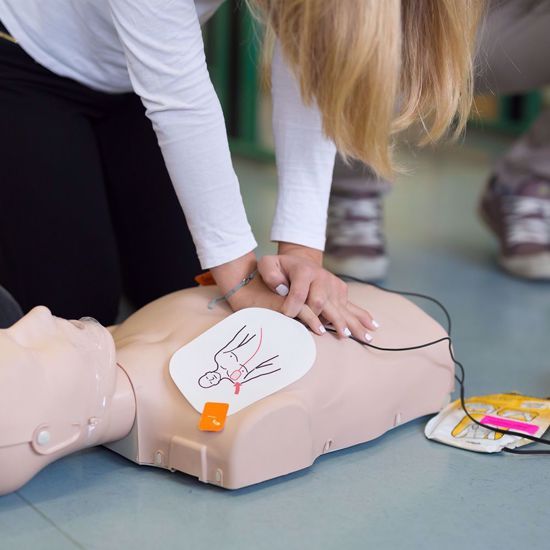Every member of staff at SABP is required to undertake Statutory and Mandatory training.
If you have any queries about training courses or accessing your learning on ESR which are not answered below, please contact training.admin@sabp.nhs.uk.
A wide variety of training is delivered in-house by our training team, however some of our courses are delivered by external providers. Subject matter on our training courses is always up-to-date with legislation.
Our training courses are delivered virtually and face-to-face. Safety of our staff is paramount and will always be taken into consideration.
We have 6 venues where we deliver our training courses and Trust Induction:
- Farnham Road Hospital, Guildford
- Two Bridges, Chertsey
- West Park, Epsom
- 18 Mole Business Park, Leatherhead
- Federation House, Leatherhead
- Clinical Research Building, Surrey University, Guildford
What is Statutory and Mandatory Training?
Statutory Training
Statutory Training is usually required by law or where a statutory body has instructed an organisation to provide training on the basis of specific legislation (i.e. the Health and Safety at Work Act 1974 and the Management of Health and Safety at Work Regulations 1999). It ensures staff have the knowledge to maintain a healthy and safe working environment for themselves and their colleagues.
Mandatory Training
Mandatory Training is compulsory training that is deemed essential by an organisation for the safe and efficient delivery of services. This type of training is designed to reduce organisational risks and comply with local or national policies and government guidelines.
Corporate Induction
Every new member of SaBP staff attends Corporate Induction within the first few weeks of starting. The Induction Day, hosted at Federation House, is our opportunity to welcome you to the Trust and provide practical information to help you in your roles. It is an opportunity to meet our senior management, gain a wider understanding of the Trust and we even provide lunch and refreshments that you can enjoy with other new staff!
Throughout the day, we include our Visions and Values that were created by our own Trust members in collaboration with our service users. There is an introduction to Safeguarding and the important role we all have in protecting others from harm. We also have presentations on Staff Networks, Freedom to Speak Up, Staff Resilience (Here for you), and Information Governance and much more.
Manual Handling/Moving and Handling
Manual Handling Level 1 (Statutory Training)
Manual handling is the movement of inanimate objects and also looks at legislation and its legal implications, along with the well-being of an individual and others. This is available via our e-Learning and applies to everyone who works within the Trust.
Moving and Handling
We have divided Moving and Handling into two separate courses; one with equipment and the other without:
Moving and Handling Safely without equipment Level 2 (Mandatory Training)
This course is delivered at our practical training venue and is aimed at those members of staff who are face-to-face with services users who may need support in their mobility, this would be service users who can support their own weight and do not need equipment in their movement.
Course Content:
- Manual Handling recap
- Cognitive and Physical assessment
- Floor to chair (observed and unobserved fall)
- Sit to stand
- Escort support
Moving and Handling Safely with equipment Level 3 (Mandatory Training)
This course is delivered at our practical training venue, and is aimed at those members of staff who are face-to-face with service users that require equipment to aid in their mobility.
Course Content:
- Manual Handling recap
- Bed mobility (SlideSheets)
- Slings fitting
- Hoisting for chair to bed
Oliver McGowan Mandatory Training
The Oliver McGowan Mandatory Training aims to provide the health and care workforce with the right skills and knowledge to provide safe, compassionate and informed care to autistic people and people with a learning disability. This requirement is set out in the Health and Care Act 2022.
The eLearning is the first part of The Oliver McGowan Mandatory Training and everyone in health and care needs to complete this piece of e-learning regardless of their role, place of work or tier/level of training previously completed.
Resuscitation, Basic Life Support and Immediate Life Support
Basic Life Support
Cardiac Arrest is when a person’s heart stops beating, many of these events are sudden and unexpected. In the UK, just 1 in 10 people will survive an out-of-hospital cardiac arrest. In-hospital, the survival rates increase to around 4 in 10. Basic Life Support training provides users with the knowledge and skills to intervene should they witness a cardiac arrest, which may just save a life.
Course Content:
- Calling for help
- CPR
- AED and Defibrillation
- Managing a person’s breathing (NOTE: amendments to this have been made since COVID-19 outbreak)
Statistics are showing survival rates from cardiac arrest are dropping since the start of COVID-19 pandemic.
Immediate Life Support
Immediate Life Support training provides staff with knowledge and skills required to support identifying, managing, and assessing the deteriorating patient, identifying causes of, and managing a cardiac arrest and airway management techniques. This course is available to registered staff (Doctors, Nurses, AHPs for whom it is relevant) who may be required to intervene in any event of the acutely unwell person or cardiac arrest.
Course Content:
- ABCDE assessment of the acutely unwell person
- Airway management skills station
- Anaphylaxis
- Medicines for emergency situations
- ALS algorithm
- CPR and defibrillation
- Human Factors
Our Safeguarding Offerings
Safeguarding Adults
Surrey and Borders Partnership offer both Safeguarding Adults levels 2 and 3. Both courses are designed to meet the competency frameworks outlined in the Adult Safeguarding: Roles and Competencies for Health Care Staff document.
Safeguarding Adults Level 2 Course Content:
- Review of Level 1 Training
- Types of Abuse

- Managing a disclosure and the duty to report
- Legislation relating to Safeguarding Adults
- Domestic Abuse
- Learning from Safeguarding Adults Reviews (SAR's) and Domestic Homicide Reviews (DHR's)
- Mental Capacity Act (MCA) and the importance of acting in best interest
Safeguarding Adults Level 3 Course Content:
- Review of Level 1 and Level 2 Training
- The Section 42 process
- Contributing to a Section 42 enquiry
- Information Sharing
Safeguarding Children
Surrey and Borders Partnership offer Safeguarding Children Level 3 as a full day, face to face course which must be completed upon induction and refreshed every three years. The course is designed to meet the competency framework outlined in the Safeguarding Children and Young People: Roles and Competencies for Health Care Staff document.
 Safeguarding Children Level 3 Course Content:
Safeguarding Children Level 3 Course Content:
- Types of Abuse
- Legislation relating to Safeguarding Children
- Female Genital Mutilation
- Learning from Safeguarding Practice Reviews
- Think Family Ethos
- Spotlight on Neglect
- Making a Referral to Social Care
Violence Reduction Training
Our Violence Reduction Training (VRT) provides practical and pragmatic approaches for staff to prevent and reduce the need for restrictive interventions. Many people generally view this type of training as “restraint training”. However, VRT exists to educate and develop staff knowledge, skills, behaviour, and attitude so that they are not required to rely on restraint and restrictive practice. For those occasions where there is no other alternative, staff are dynamically trained to be competent and feel confident to use effective physical techniques that are transferable to occupational environments which minimise risk, injury and trauma to both staff and those they support. VRT is a profoundly different model to the typical ‘off the shelf’ training package. It is designed for the Trust and by the Trust, considering known risks and needs at the centre of everything we deliver.

Violence Reduction Training Offered:
An initial - 4 day course
Annual re-fresher - 2 days
Objectives: to reduce the need and use for restrictive interventions in accordance with the RRN network standards.
Who should complete this course? Anyone working in Inpatient Services